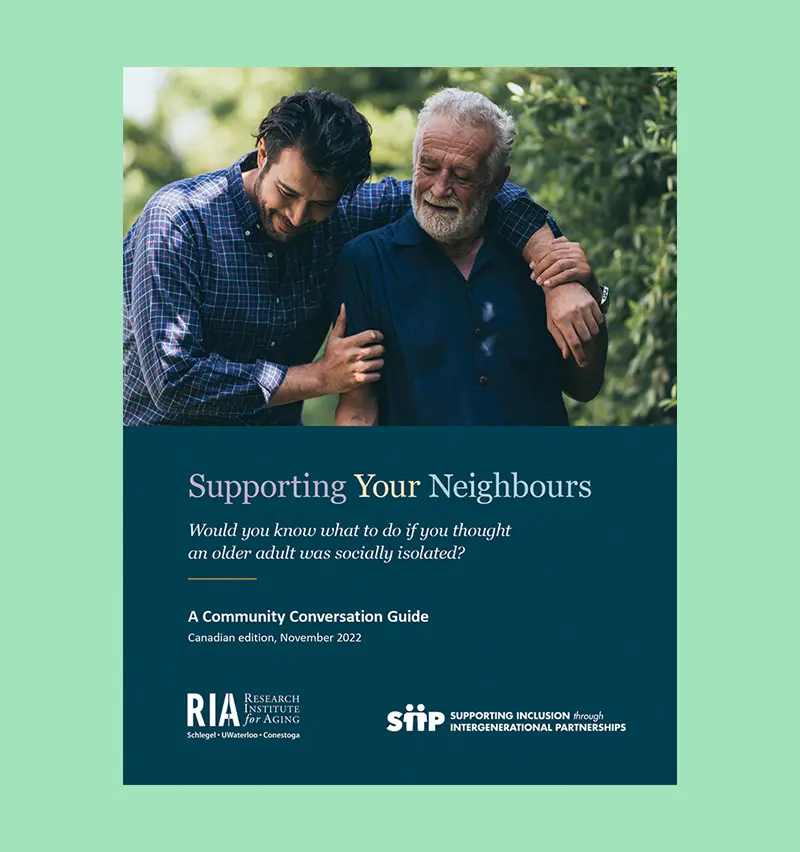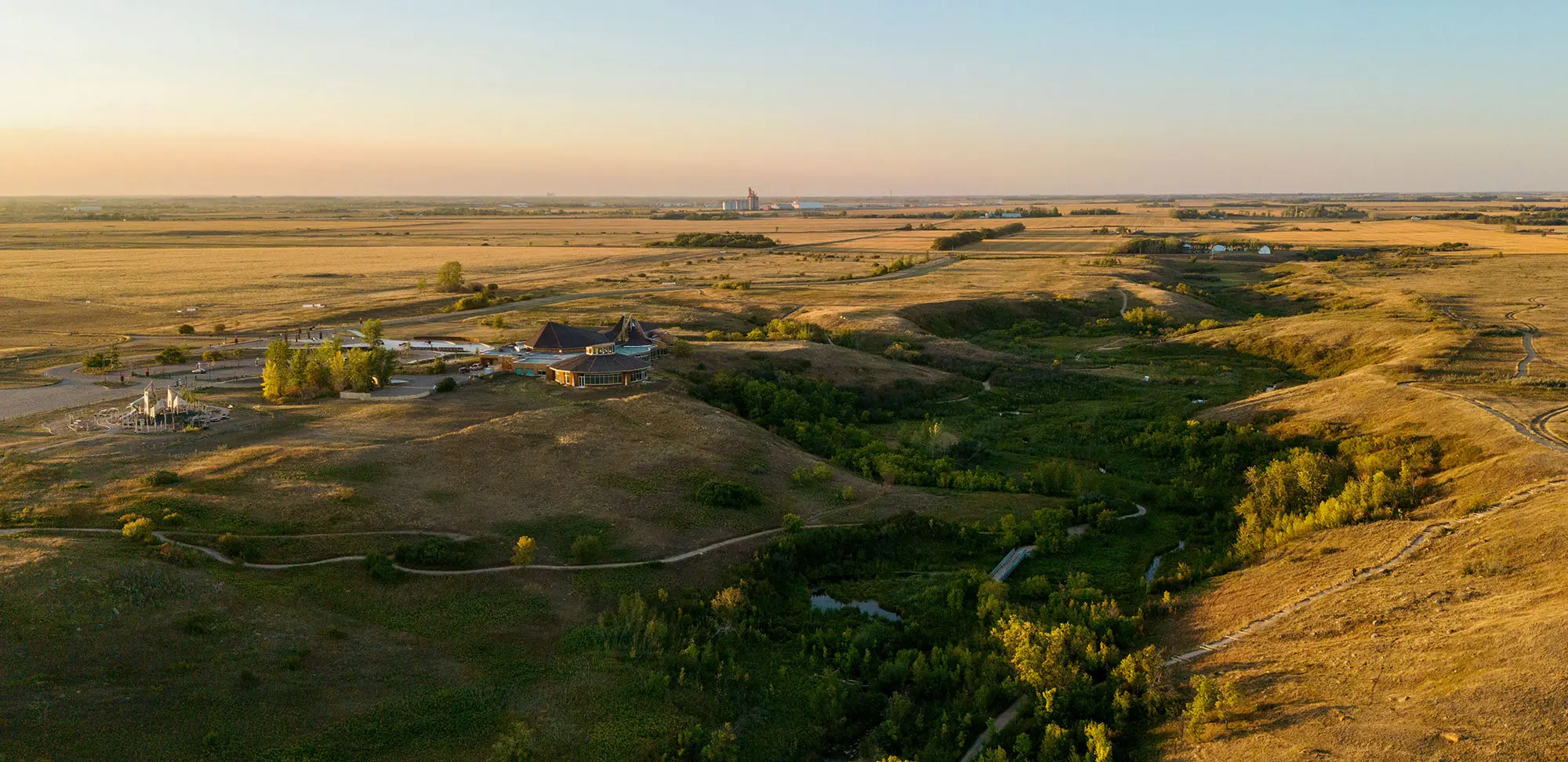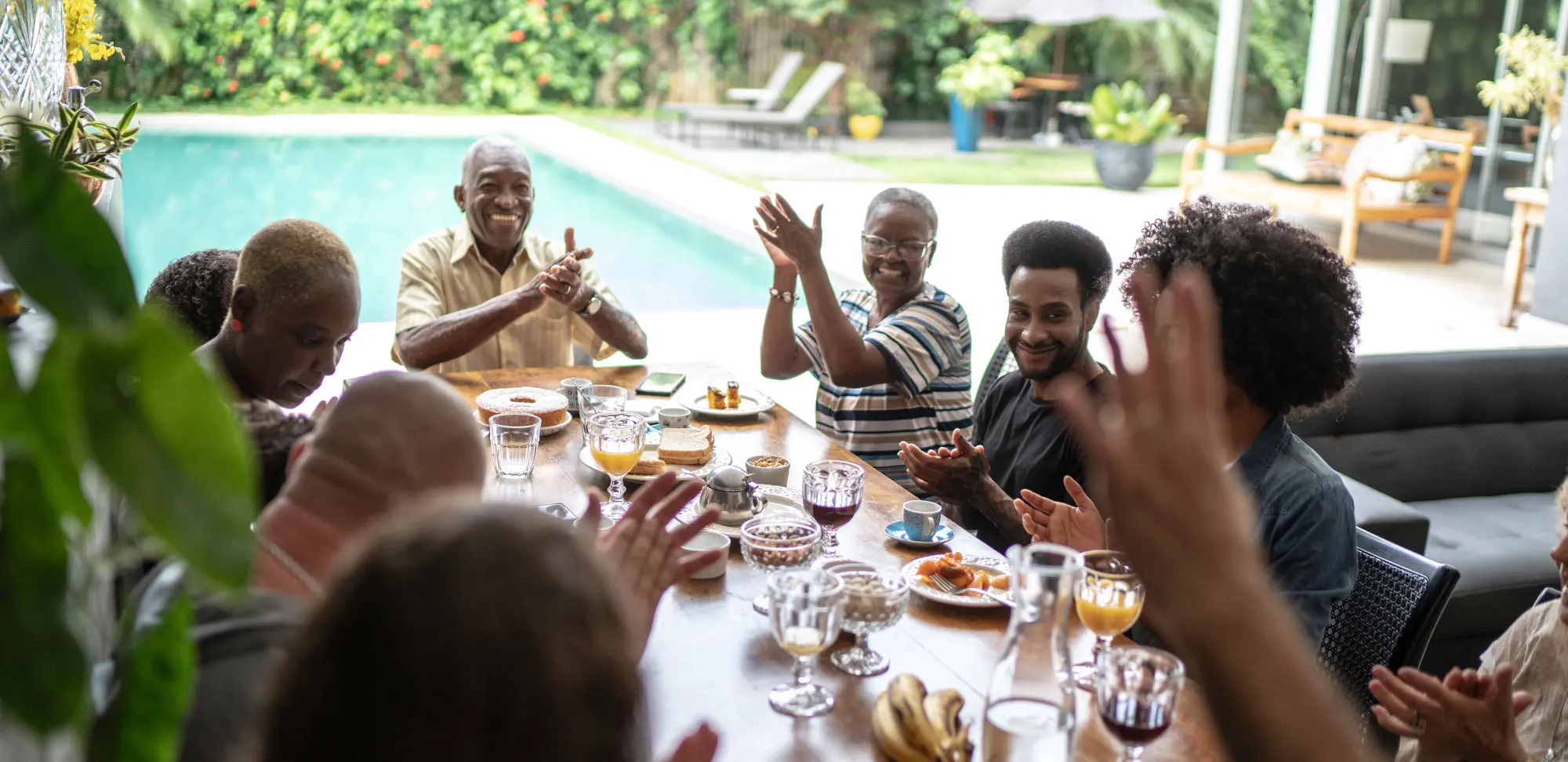Picture this: You stop by your local coffee shop and spot your neighbour. “John” is a Second World War veteran who’s lived alone since his wife passed away three years ago. You notice John’s clothes appear unwashed and he looks dishevelled, quite unlike his usual sharp appearance.
What could you do?
Start a conversation, a new guide developed with funding from the RTOERO Foundation advises. In that conversation, John might reveal he’s having a hard time getting around or making his own meals. You might discover that he has no family in the area and he’s reluctant to ask for help.
During the conversation with you, John might realize there are supports he didn’t know about or hadn’t considered.
The guide, called Supporting Your Neighbours: A Community Conversation Guide, highlights the importance of recognizing and using the power of conversation. It offers strategies for starting a conversation with people like John. It includes risk factors to look out for, such as the death of a partner, hearing or vision loss, mobility restrictions and low income. You’ll find signs of social isolation and suggested conversation starters that lead with empathy.
The guide also outlines the type of barriers — transportation, financial, language, physical health and more — that may prevent community participation, and where to go for help.

Research for the real world
Enhancing quality of life for older adults is the mission of the Schlegel-UW Research Institute for Aging (RIA). A non-profit organization, the RIA connects research to the real world, designing resources, programs and education for older adults. The guide is their creation, part of a five-year project called Supporting Inclusion through Intergenerational Partnerships (SIIP). Its goal is to reduce the social isolation of people living with dementia and their care partners through intergenerational programming in Ontario’s Waterloo Region.
An RTOERO Foundation call for proposals aligned well with the SIIP project plans. The foundation raises and invests funds in research and programs that benefit Canada’s aging population in two areas: geriatric research and social engagement.
The RIA proposal targeted the latter, amplifying their work focused on a small population in the Township of Woolwich, a mostly rural community in the heart of Mennonite country in Waterloo Region. The RIA chose the area because it already had infrastructure that would support the guide’s success and because older adults there were likely to face some of the known risk factors of social isolation.
RTOERO Foundation by the numbers
2011 Year the RTOERO Foundation was formed
$770,333 Grants given since 2011
$35,000 Average grant
23 Grants awarded
12 # of months each project typically lasts
2 Grant project focus areas: geriatric research and social engagement
“The SIIP project aims to contribute new research about effective strategies to reduce barriers, promote social inclusion and identify individuals in need of support,” says Dana Zummach, manager of dementia programs at the RIA. “With this proposal, we wanted to develop a resource to support community members. Our goal was to identify those at risk, provide guidance on what to do next and how to start a conversation, as well as what to do if the person’s needs are beyond what an individual can handle.”
The RIA received the grant just before COVID-19 hit and produced the Supporting Your Neighbours guide in April 2022.
Project sets the bar for the future
“When we received the first draft of the RIA project results, we were blown away,” says Mike Prentice, executive director of the RTOERO Foundation. “Often research reports are densely academic, but this was a readable, practical guide that was almost ready to release to the public.”
The original guide was specific to the Township of Woolwich, and at the foundation’s request, the RIA created an additional version with a national focus. The foundation then had the national version translated into French.
The foundation had already been making changes to its grant program to make it more efficient. The experience with the RIA guide highlighted the value of some additional changes for future projects:
- Ensure collaboration between the foundation and the grant recipients.
- Include a more readable layperson summary as well as the usual academic report.
- Share project knowledge in multiple ways, such as infographics, summaries, visuals and specific landing pages with a link to download the resource.
Meanwhile, Zummach reports positive feedback to the guide from community members. “Most said they understood the purpose of the guide, felt confident in recognizing the risks of social isolation among older adults and felt confident supporting a person to connect with a community organization,” she says.
Ready to step up and start your own community conversations? You’ll find practical ways to help when you download Supporting Your Neighbours. Get the guide in English or French from the RTOERO Foundation’s list of projects funded at rtoero.ca/rtoero-foundation/our-work/projects-we-fund or SIIP at intergenerationalpartnerships.ca/resources.











